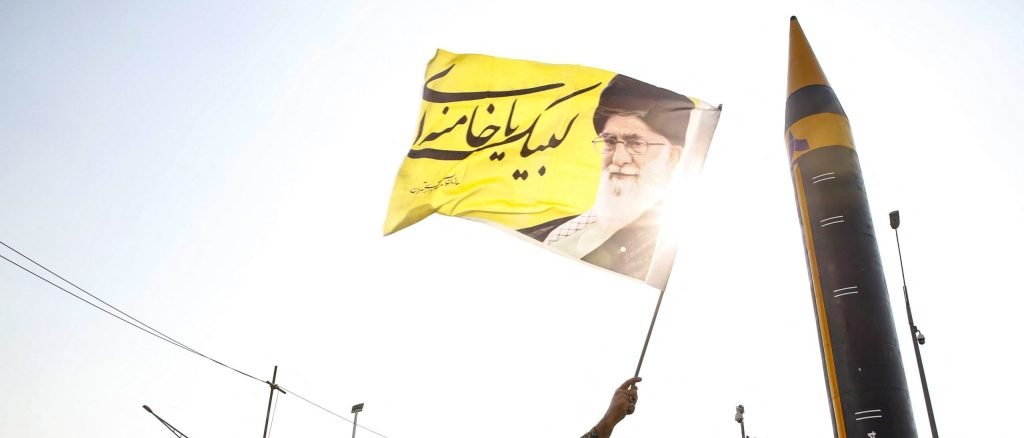Any discussion of the current Middle East conflict begins with the obligatory slogan: “We do not want war with Iran.” Why not? That question is rarely asked.
Iran has declared war on the United States militarily, legally, diplomatically, morally, and politically.they have repeatedly worked on causes of infidelity It has been the cause of a legal war ever since the mullahs took Americans hostage in 1979.
Since then, they have been using their proxies to attack American targets. We have the right to respond militarily, as we are doing. (Related: Why on earth did Biden give Iranian proxies so much time to prepare for our retaliatory strikes?)
But we also have the right to go further and treat them as invaders who have effectively declared war on us. We have the right to destroy their ability to continue the war against us and our allies.
The policy question is not whether we have the right to go to war against Iran. The question is whether it is in our interest to do so.
It would be best if all or most of the legitimate objectives could be achieved without the expensive and dangerous means of all-out war. That's what the Biden administration is trying to do by attacking some of Iran's proxies without attacking military targets inside Iran. But will that limited strategy work?
Iran's long-standing strategy has been to use mostly Arab soldiers to do the dirty work without endangering its own non-Arab soldiers or civilians. This is a kind of ethno-religious colonialism. That's why critics say Iran will fight to the last Arab!
Biden's strategy will go their way. Targeting Syrian, Iraqi and Yemeni Arabs in an effort to deter non-Arab Muslims in Iran.
So far it's not working. Perhaps the recent escalation of attacks against Iranian proxies will strengthen deterrence against Iran. However, many experts believe that unless you directly attack the octopus' head, the octopus will simply extend its tentacles further and continue its predation through willing proxies. (Related: Iran-backed attacks hamper US mission against ISIS in Iraq, watchdog report says)
Of course, there are alternatives that are less than all-out war and more than proxy attacks. Those include bombing military targets inside Iran.
These include sites used for Iran's nuclear program, naval bases and ships, military drone production, oil and gas facilities, and command centers. All of this can be done by air and sea, without a ground invasion, and without risking invasion or loss of American life.
Such an escalation could yield a number of benefits, including delaying or even halting Iran's acquisition of nuclear weapons. If this happens, Iran's expansion in exports of sophisticated military drones will be weakened. And it will hurt Iran's economy, which is used to export terrorism.
Whether such a multi-pronged attack inside Iran weakens or strengthens the Islamists' undemocratic grip on the secular Iranian people, many of whom would welcome regime change – as is the case in Iran's Arab neighbors. It is impossible to know for sure that some of them will be the same.
One conclusion is clear. In the short term, a US attack on Iran itself would contribute to regional instability. But in the long run, it could contribute to stability by reducing the power and influence of the most destabilizing entity in the Middle East: Iran.
Israel is also at war with Iran. Iranian operatives target Israeli civilians and Jews around the world. Iran de facto called Israel “1 bomb condition” I have blackmailed To destroy it with nuclear weapons. Israel also has full rights to respond to these acts of war. In fact, doing so may be the only way to prevent Iran from carrying out its threat of nuclear annihilation.
The Middle East and the world would be a safer place without the current Iranian regime. If a nuclear-armed Iran were able to protect its proxies under the nuclear umbrella, it would be a much more dangerous place.
The best outcome would be to effectively prevent Iran from pursuing its belligerent policies without attacking within its borders. So Biden's strategy should be given a chance to work. But if that fails, which history suggests is a possibility, all options must be considered.
This includes attacks inside Iran, even if it means war. This may not be the worst of the many options available.
Alan Dershowitz is a professor emeritus at Harvard Law School and the author of Get Trump, Guilt by Accusation, and The Price of Principle. Democrat Andrew Stein served as president of the New York City Council from 1986 to 1994.This work reissue From the Alan Dershowitz Newsletter.
The views and opinions expressed in this commentary are those of the author and do not reflect the official position of the Daily Caller News Foundation.
All content produced by the Daily Caller News Foundation, an independent, nonpartisan news distribution service, is available free of charge to legitimate news publishers with large audiences. All republished articles must include our logo, reporter byline, and DCNF affiliation. If you have any questions about our guidelines or partnering with us, please contact us at licensing@dailycallernewsfoundation.org.
















